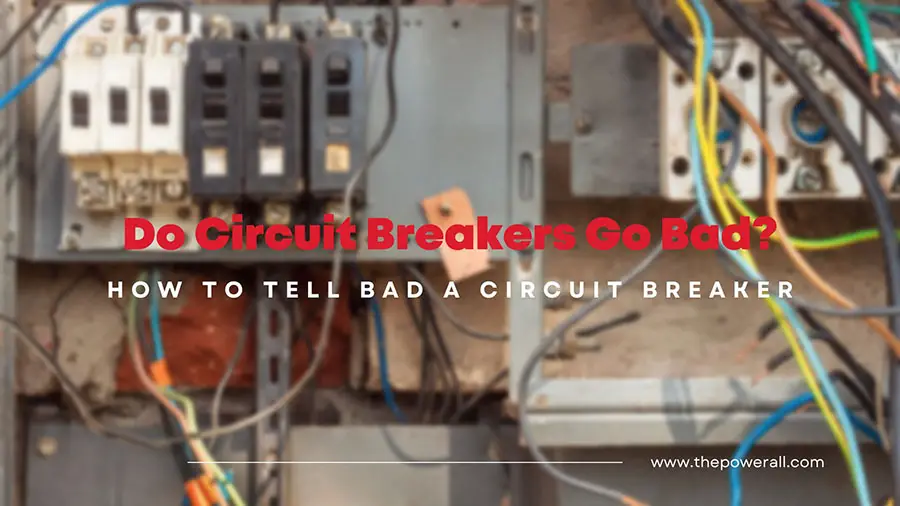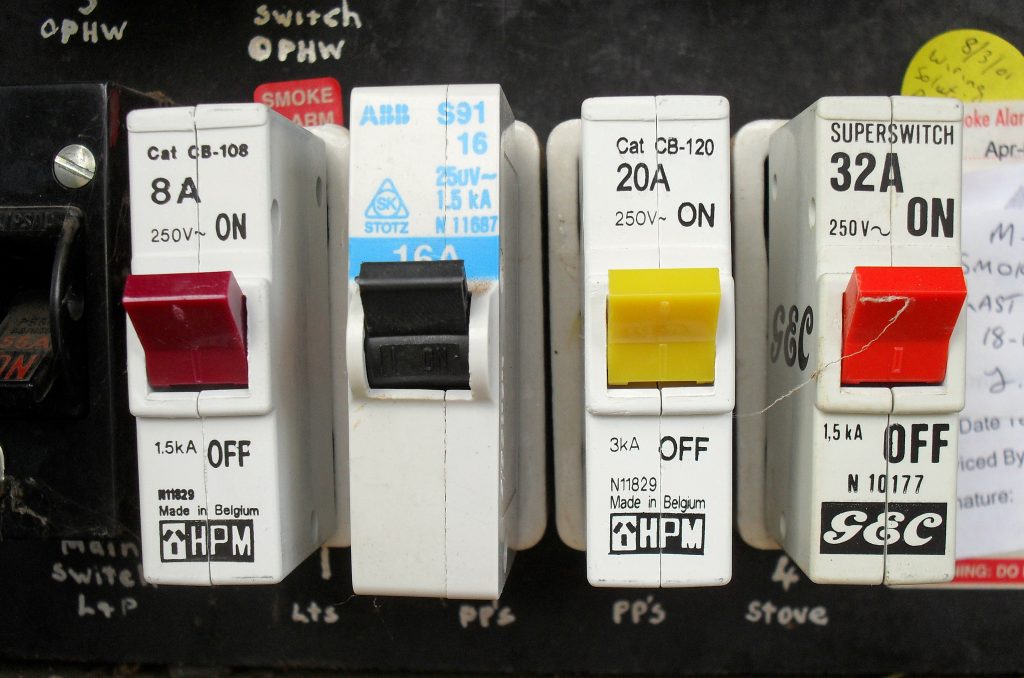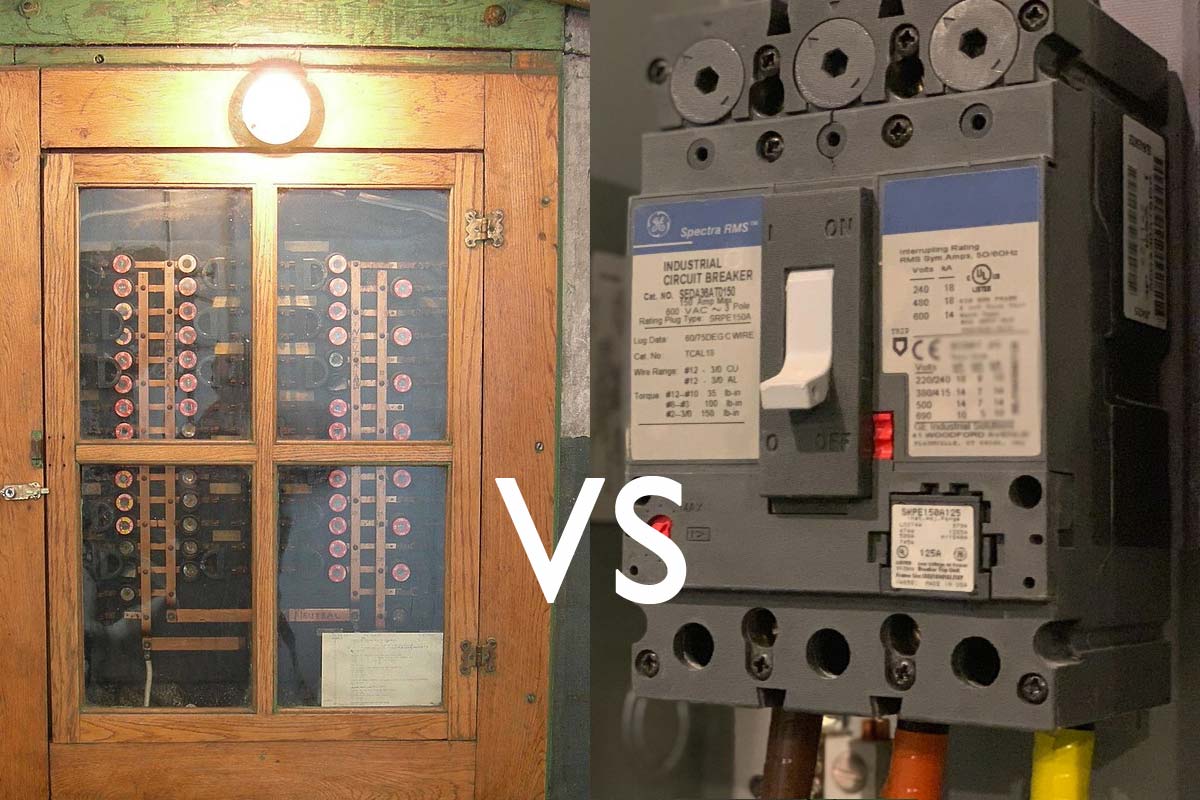Best Info About Is A Circuit Breaker Good Or Bad

Circuit Breakers
1. Understanding the Core Function
Alright, let's dive into the electric world! When thinking about electrical safety in your home, circuit breakers often come to mind. Are they the unsung heroes diligently protecting us from fiery doom, or are they just another potential headache waiting to happen? The truth, as with most things, is a bit more nuanced. At their core, circuit breakers are designed to protect your electrical system from overloads. Think of them as tiny, tireless guards, constantly monitoring the current flowing through your wires.
When too much current flows — say, if you plug in five space heaters into one outlet (please don't do that!) — the circuit breaker trips, cutting off the power. This prevents the wires from overheating, which could lead to a fire. So, in that sense, they're definitely a good thing. They're like the responsible adult in the room, preventing you from making a potentially dangerous mistake. They are the safety net you didn't know you needed, always there ready to help.
A circuit breaker works by sensing the excessive current. Typically, this is achieved through a bimetallic strip or a solenoid. When the current exceeds the breaker's rating, the strip heats up and bends, or the solenoid pulls a lever, causing the breaker to trip. This mechanical action breaks the circuit, stopping the flow of electricity. Think of it like a tiny switch that automatically flips when things get too hot to handle.
Without circuit breakers, or their older cousins fuses, our homes would be significantly more prone to electrical fires. They are a vital component of modern electrical safety. So, next time you flip a breaker back on after a momentary overload, remember to thank it for potentially saving your house! It is the tiny hero that protects us all day.

How Can You Tell If Your Circuit Breaker Is Faulty Or Broken
The Case for "Good"
2. Safety First, Always
Let's expand on the "good" side of circuit breakers. Imagine a world without them. Overloaded circuits would simply keep drawing power until something melted or caught fire. Pretty scary, right? Circuit breakers prevent exactly this scenario. They're a vital safety feature, especially in older homes where the wiring might not be up to modern standards. They are the backbone of a safe home and electrical system.
Furthermore, circuit breakers are reusable, unlike fuses which need to be replaced every time they blow. This makes them a more cost-effective and convenient solution in the long run. Simply flip the switch back on (after addressing the cause of the overload, of course!), and you're good to go. No more fumbling around in the dark trying to find the right fuse.
Another advantage is their sensitivity. Modern circuit breakers are designed to trip quickly and reliably in response to even small overloads or short circuits. This minimizes the risk of damage to your appliances and electronics. They are vigilant protectors making sure that your devices are safe.
And it's not just about preventing fires. Circuit breakers also protect against electrical shock. In the event of a ground fault, where electricity flows through an unintended path (like, say, through a person), a ground fault circuit interrupter (GFCI) breaker will trip almost instantly, preventing serious injury or even death. They have become a need in order to keep people safe.

Circuit Breakers Vs Fuse Box (New Old & Differences Between Both
The Potential "Bad"
3. Troubleshooting and Annoyances
Now, let's flip the switch (pun intended!) and look at the potential downsides. Circuit breakers can be a pain when they trip frequently. It's annoying to have the lights go out or your computer shut down unexpectedly. Constant tripping can be a sign of a more serious problem, like an overloaded circuit or faulty wiring, that needs professional attention. Ignoring this persistent issue can lead to dangers that can be avoided.
Another common complaint is the difficulty in troubleshooting the cause of a tripped breaker. Sometimes it's obvious — you plugged in too many things at once. But other times, it can be a real mystery. Figuring out which appliance is causing the problem can be a frustrating process of trial and error. This is where the help of an electrician could be very helpful.
Furthermore, circuit breakers do have a limited lifespan. Over time, they can become less reliable and may trip unnecessarily or, conversely, fail to trip when they should. Regular inspection and replacement of older breakers is essential to ensure continued safety. This will help make sure you and your house are safe. It is always better to be safe than sorry.
Finally, some older circuit breaker panels can be prone to certain types of failures. For example, Federal Pacific Electric (FPE) panels have been shown to have a higher failure rate than other brands, and their breakers may not trip reliably in the event of an overload. If you have an FPE panel, it's highly recommended to have it inspected by a qualified electrician. It could potentially save your life.

How To Tell If A Circuit Breaker Is Bad
Decoding the Mystery
4. Common Causes and Solutions
So, your circuit breaker keeps tripping. What's going on? The most common cause is an overloaded circuit — too many devices drawing power from the same circuit. Try unplugging some appliances and see if that solves the problem. Maybe your TV, game console, space heater, and phone charger are all fighting for the same limited energy. A little rearrangement and a little planning ahead can help prevent this issue.
Another potential cause is a short circuit. This happens when a hot wire comes into contact with a neutral wire or a ground wire. Short circuits can be dangerous and often cause a breaker to trip immediately. If you suspect a short circuit, don't attempt to fix it yourself. Call a qualified electrician. Safety is always the number one priority.
A ground fault, as mentioned earlier, is another reason for a breaker to trip. This occurs when electricity leaks out of its intended path and finds another way to ground. GFCI breakers are designed to detect these faults and trip quickly. Ground faults can be very dangerous and should also be addressed by a professional. It is best to let the professionals handle this issue.
Finally, the breaker itself could be faulty. Over time, circuit breakers can wear out and become less reliable. If you've ruled out other causes, it might be time to replace the breaker. Replacing a breaker is a relatively simple task, but if you're not comfortable working with electricity, it's best to call an electrician. Having them do it will ensure it is done correctly.

How To Tell If A Circuit Breaker Is Bad In Just 3 Steps?
The Verdict
5. Weighing the Pros and Cons
Ultimately, circuit breakers are overwhelmingly a "good" thing. They're an essential safety feature that protects our homes and families from electrical fires and shocks. While they can be annoying when they trip, the alternative — a house fire — is far worse. They are the perfect safety net when dealing with potentially dangerous situations.
However, it's important to remember that circuit breakers are not a magic bullet. They're just one part of a safe electrical system. Regular inspection and maintenance are crucial to ensure that your electrical system is functioning properly. Neglecting your electrical system could lead to disaster.
If you're experiencing frequent breaker trips or have any concerns about your electrical system, don't hesitate to call a qualified electrician. They can diagnose the problem and recommend the best course of action. It will give you the peace of mind you deserve.
So, the next time you hear that familiar "click" of a circuit breaker tripping, take a deep breath, assess the situation, and remember that it's doing its job to keep you safe. And maybe consider unplugging that extra space heater!

How To Tell If A Circuit Breaker Is Bad Boggs Inspection Services
FAQ
6. Addressing Common Concerns
Still got questions about circuit breakers? Here are a few frequently asked questions to help clear things up:
7. Q
A: First, identify the tripped breaker. It will usually be in the "off" or "tripped" position. Push the breaker all the way to the "off" position, and then flip it to the "on" position. If it trips again immediately, there's still a problem. If it stays on, you are good to go!
8. Q
A: While it's possible to replace a circuit breaker yourself if you're comfortable working with electricity, it's generally recommended to hire a qualified electrician. Working with electricity can be dangerous, and it's always better to be safe than sorry. It is not worth potentially injuring yourself.
9. Q
A: It's a good idea to have your electrical panel inspected by a qualified electrician every 5-10 years, or sooner if you notice any problems. Regular inspections can help identify potential issues before they become major problems. Regular inspections will always be a good idea.